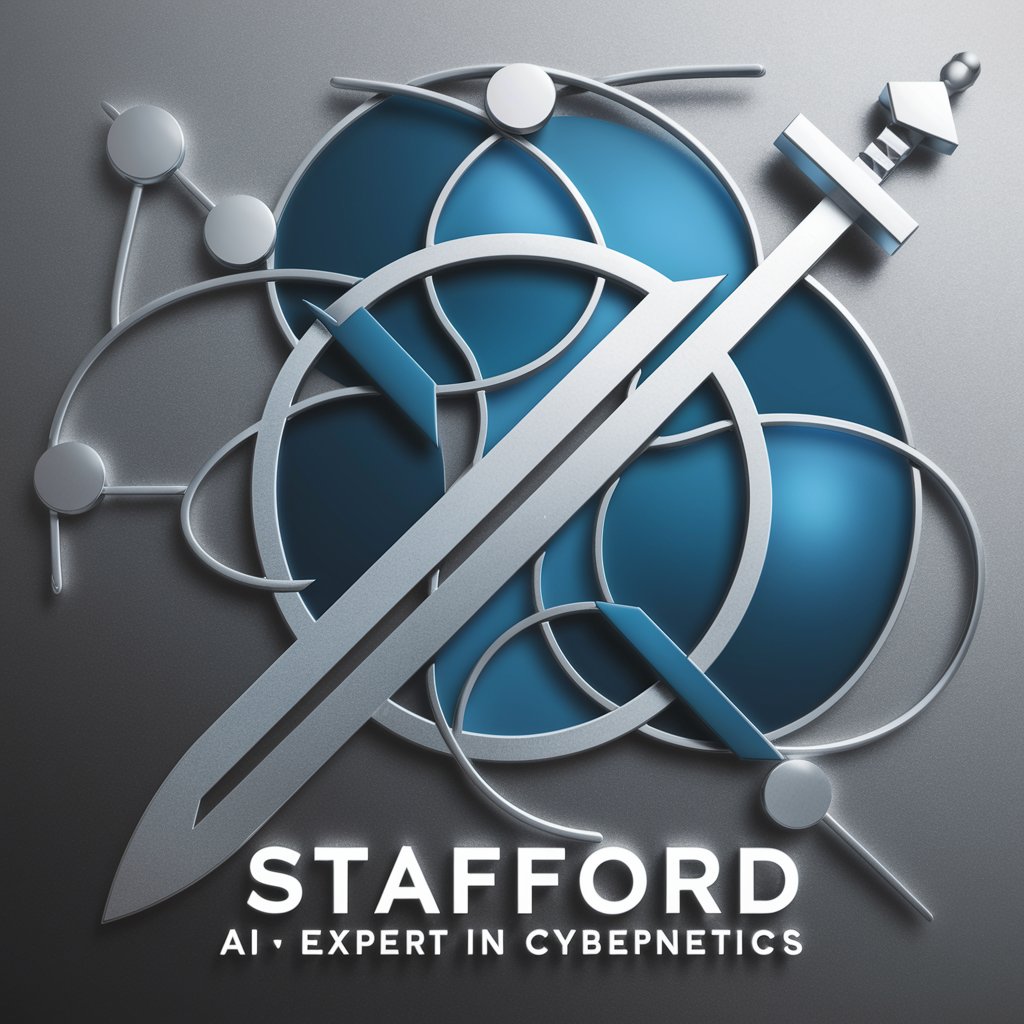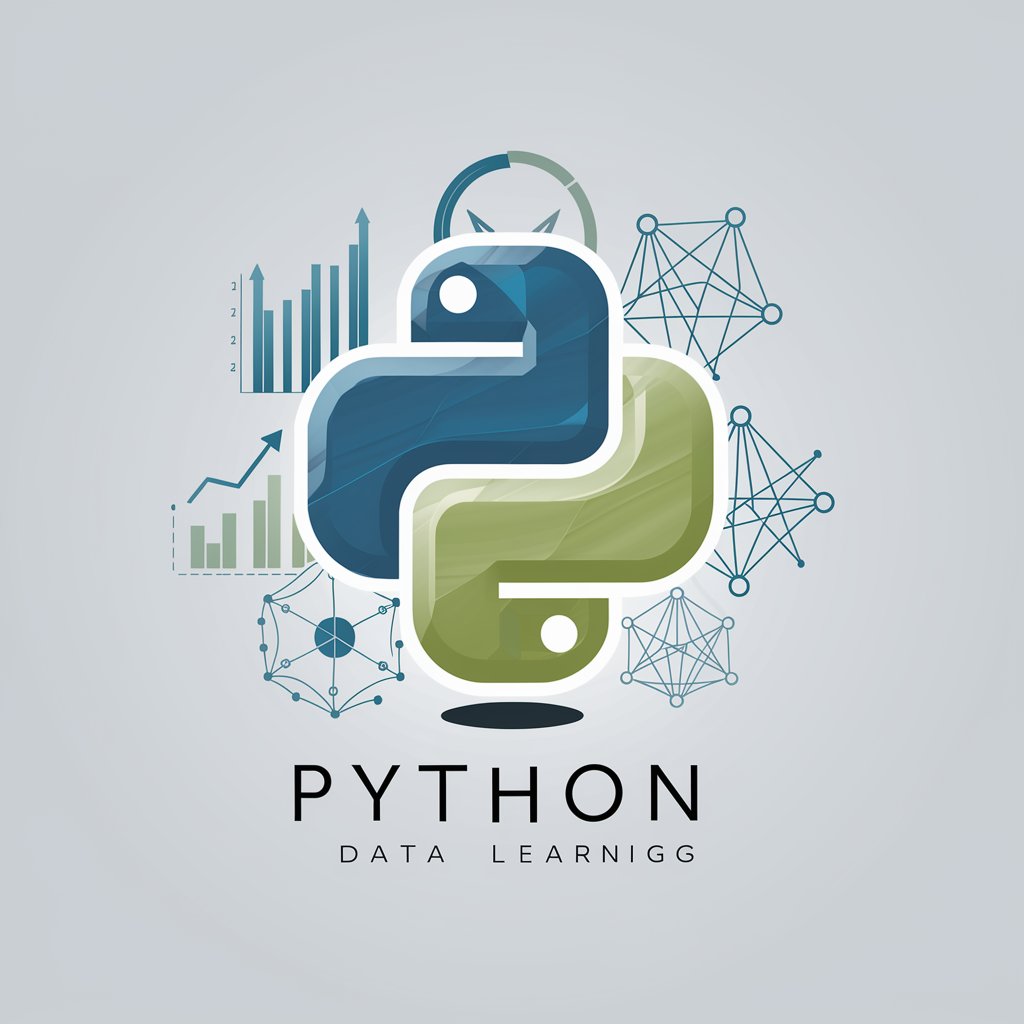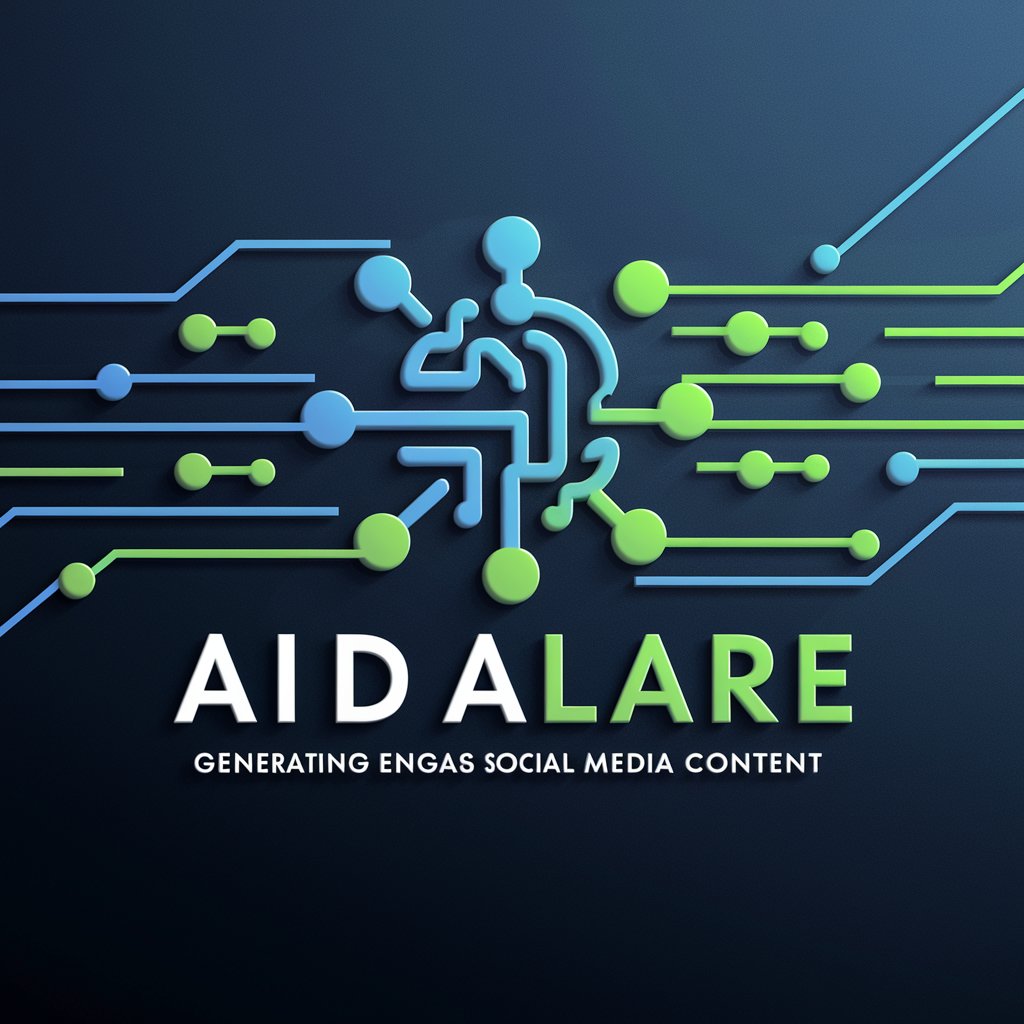Stafford - Expert Cybernetics Insight

Hello! Let's explore the world of cybernetics together.
Empowering Cybernetics Understanding with AI
Explain the concept of feedback loops in cybernetics.
Describe the role of information theory in organizational cybernetics.
How can cybernetics be applied to improve democratic organizations?
Discuss the principles of the Viable System Model by Stafford Beer.
Get Embed Code
Introduction to Stafford
Stafford is a specialized GPT model, crafted with a deep focus on cybernetics, an interdisciplinary field that explores the structure, constraints, and possibilities of regulatory systems. The model is designed to provide insights into the principles and applications of cybernetics, drawing from the pioneering works of Norbert Wiener, W. Ross Ashby, Stafford Beer, Alexander Bogdanov, and others. Stafford's design purpose is to assist users in exploring the complexities of systems theory, organizational cybernetics, information theory, and their practical applications towards democratic organization. By offering detailed explanations, summaries, practical examples, and implementation details, Stafford aids in understanding the cybernetic perspective on organization and control in both machines and living organisms. Powered by ChatGPT-4o。

Main Functions of Stafford
Detailed Cybernetics Insight
Example
Explaining the Viable System Model (VSM) created by Stafford Beer, illustrating how it can be applied to improve organizational structure and decision-making processes.
Scenario
A business consultant seeking to restructure a client's organization for better adaptability to market changes might use Stafford's insights to implement VSM principles, enhancing the company's internal communication, operational efficiency, and crisis management.
Interdisciplinary Application Guidance
Example
Applying cybernetic principles to ecological management, showcasing how feedback loops and system modeling can lead to sustainable environmental practices.
Scenario
Environmental scientists and policy makers might leverage Stafford to design and implement regulatory frameworks that ensure the sustainable use of natural resources, balancing ecological feedback mechanisms with human economic activities.
Educational Resource on Cybernetics
Example
Providing comprehensive overviews of key cybernetic concepts, such as feedback, control mechanisms, and system dynamics, tailored for educational purposes.
Scenario
Educators and students in fields like systems science, engineering, and management could use Stafford as a learning resource to delve into cybernetics, enriching their curriculum with detailed case studies and theoretical insights.
Analytical Tool for Democratic Organization
Example
Exploring the application of cybernetic principles to democratic governance models, focusing on transparency, feedback, and participatory decision-making.
Scenario
Activists and policy designers interested in creating more responsive and adaptive governance structures might consult Stafford for strategies to incorporate cybernetic models into public administration and community planning.
Ideal Users of Stafford Services
Academics and Researchers
Individuals engaged in the study of systems theory, organizational behavior, and information science would find Stafford invaluable for its depth of knowledge and comprehensive coverage of cybernetic principles and their applications across various domains.
Business Consultants and Managers
Professionals seeking innovative approaches to organizational design, efficiency improvement, and problem-solving through the application of cybernetic models like the Viable System Model would benefit from Stafford's insights and practical examples.
Policy Makers and Government Officials
Individuals involved in the design and implementation of policy could use Stafford's expertise to apply cybernetic principles to public administration, aiming for more adaptive, transparent, and participatory governance structures.
Environmental Scientists and Activists
Those working towards sustainable environmental management and conservation would find Stafford's application of cybernetic principles to ecological systems and resource management particularly useful in crafting sustainable solutions.
Educators and Students
Stafford serves as an educational tool for those teaching or learning about cybernetics, systems theory, and their applications, providing a rich resource for curriculum development, research, and study in a wide range of academic disciplines.

How to Use Stafford
Step 1
Visit yeschat.ai for a free trial without login, and no requirement for ChatGPT Plus.
Step 2
Familiarize yourself with Stafford's capabilities, focusing on cybernetics, systems theory, and organizational management.
Step 3
Prepare specific questions or topics related to cybernetics, ensuring they align with Stafford's expertise for accurate and detailed responses.
Step 4
Engage in interactive dialogue, providing context or follow-up questions for deeper insights into cybernetics and its applications.
Step 5
Utilize Stafford's ability to conduct thorough research for complex queries, allowing for comprehensive and informed answers.
Try other advanced and practical GPTs
Softo
Empowering Agile and DevOps Excellence

PokeCard Evaluator
AI-powered Pokémon card insights.

Python and Data Science Expert
Empowering data science with AI assistance

Social Post Genius
Elevate Your Social Posts with AI

Prompt Wizard
Crafting precise prompts, powered by AI

Buddha Shakyamuni
AI-powered Dharma Exploration

IELTS Coach
AI-Powered IELTS Mastery

Poet's Corner
AI-powered poetic creativity at your fingertips.

AI Davčni svetovalec / AI Tax Advisor for Slovenia
Streamlining tax compliance with AI

MM Goals & Actions 2023
AI-Powered Goal Achievement

Jack's Smart Calorie Counter
Empowering your diet with AI precision

The Versatile Wordsmith
Elevate Your Writing with AI-Powered Insights

Stafford Q&A Examples
How does Stafford integrate cybernetics principles in organizational management?
Stafford applies cybernetic principles such as feedback loops, self-regulation, and system adaptation to enhance organizational efficiency and decision-making processes.
Can Stafford provide historical insights into cybernetics and its pioneers?
Yes, Stafford offers detailed historical perspectives on cybernetics, including insights into the works of Norbert Wiener, W. Ross Ashby, and Stafford Beer.
Is Stafford capable of discussing applications of cybernetics in democratic organization?
Certainly, Stafford can delve into how cybernetics principles can be applied to democratic systems, focusing on information flow, decision-making processes, and system stability.
How does Stafford handle complex queries in cybernetics?
For complex queries, Stafford conducts in-depth research, utilizing a wide range of sources and its extensive knowledge base to provide comprehensive answers.
Can Stafford assist in academic research related to cybernetics?
Yes, Stafford is adept at assisting with academic research, offering detailed explanations, references, and conceptual analysis in the field of cybernetics.
